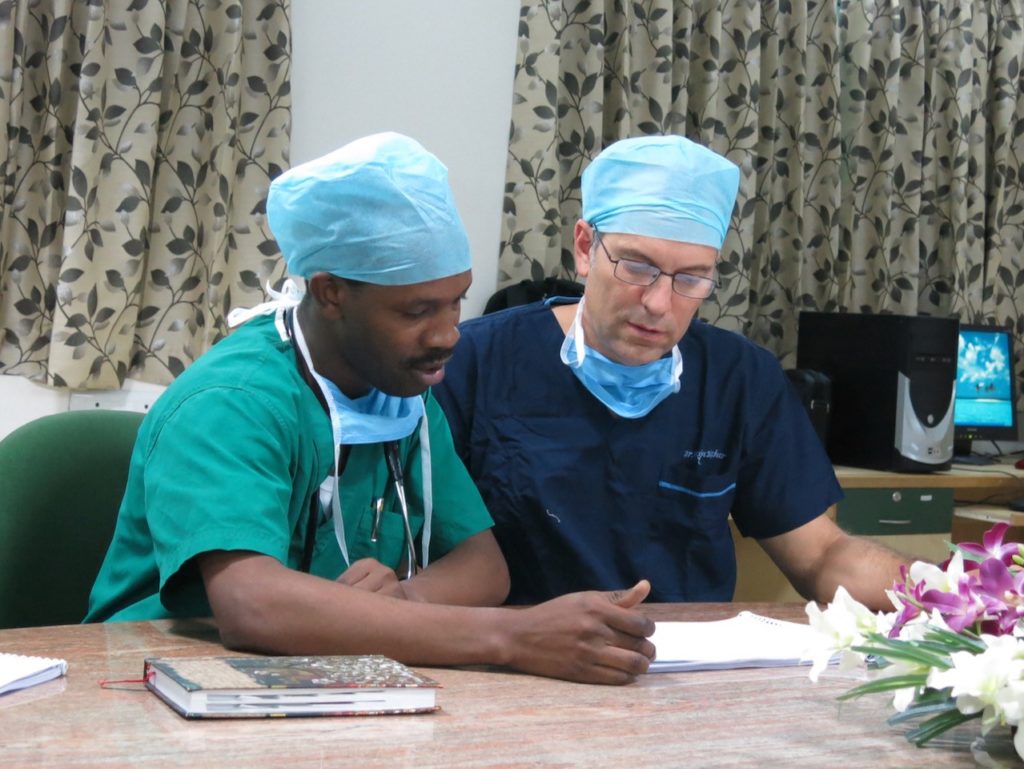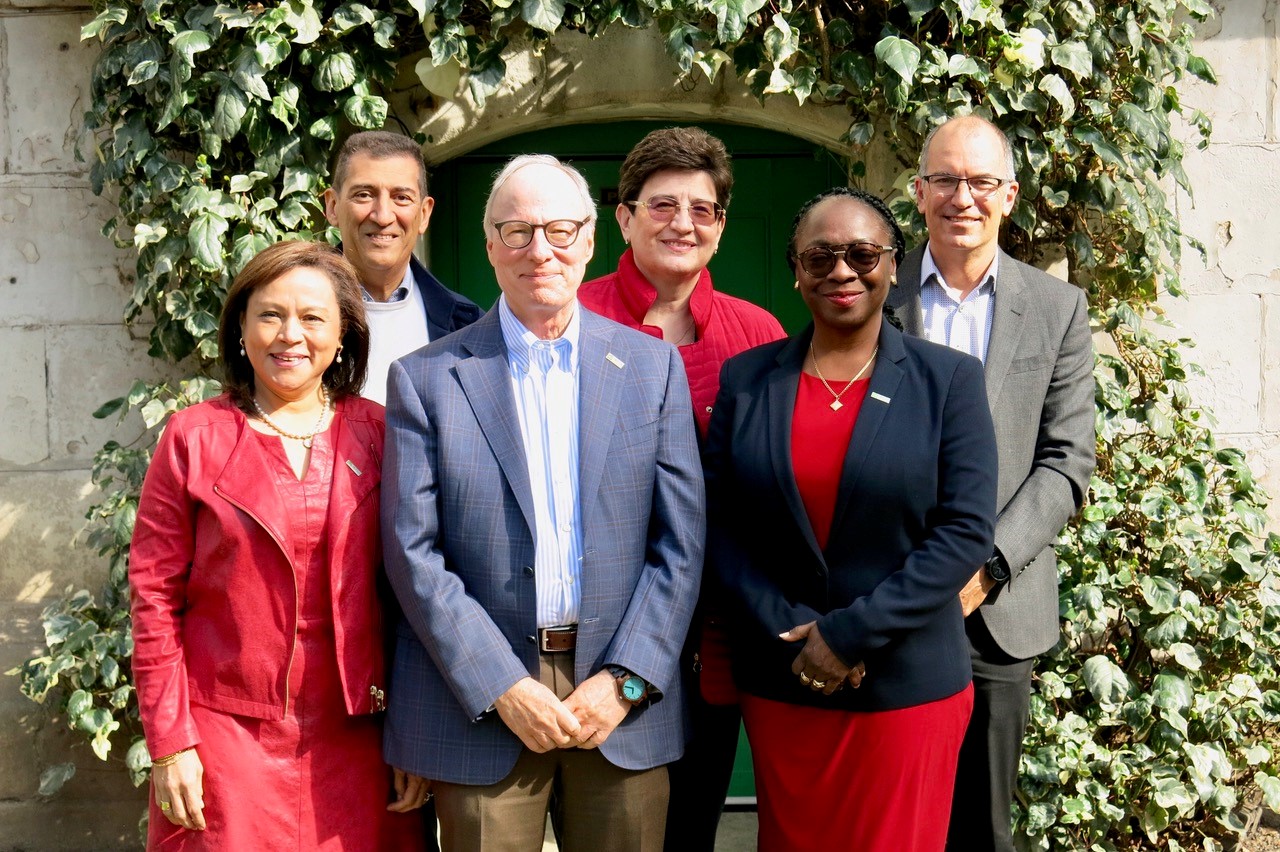On 1 July 2022, following two challenging but successful years, Adrian Gelb formally handed the WFSA presidency baton onto Wayne Morriss. In line with WFSA’s constitution, Adrian has now assumed the role of Immediate Past President.
Find out more about the successes, challenges, and upcoming priorities of the WFSA in the words of our new President and Immediate Past President.
What does the WFSA presidency mean to you?
AG – Being WFSA’s President has been a huge honour and privilege, made all the more so by so many wonderfully committed and helpful colleagues on the Board, Council and beyond. It was certainly not the experience that I anticipated pre-COVID! I do enjoy challenges and constructively working through them, and this was definitely a challenging time to lead-in. The fact that the WFSA has come through this global pandemic in excellent shape is very satisfying.
WM – First, I’d first like to pay tribute to the incredible job that Adrian has done during the last two years. The COVID-19 pandemic has thrown up many challenges and Adrian has led the WFSA with a mixture of great skill, common sense, and vision during turbulent times.
I’m excited about leading the WFSA, a unique and amazing international organisation. I’m ready for the challenge and truly believe in our mission “to unite and empower anaesthesiologists around the world to improve patient care.” We can achieve great things by working together as a united speciality.
Wayne, you’re our longest-serving board member, what is your history with the WFSA?
WM – My relationship with the WFSA started in 2008 when I became a member of the Education Committee (EdCom). In 2012, I was appointed Chair of EdCom and I’ve been a member of the WFSA Council and WFSA Board since then. I was elected Director of Programmes in 2016 and President-Elect in 2020.

I’ve also been closely involved with the WFSA Fellowship Programme and educational courses such as SAFE, Primary Trauma Care, and Essential Pain Management. I’m passionate about education and strengthening our workforce and I’ve visited and taught in dozens of countries around the world.
Wayne, a lot has changed over the last couple of years, what is WFSA’s role in the world today?
WM – The WFSA is more important now than ever before. During the last 10 years, the WFSA has helped to raise the profile of our speciality and increase awareness of our multiple contributions to health systems. But there is a lot of work still to do – the WFSA needs to continue to advocate on behalf of anaesthesiologists everywhere to ensure better resourcing for our speciality and our patients.
The COVID-19 pandemic has shifted attention away from non-COVID areas of health care and we must continue to remind governments of their 2015 World Health Assembly promise to strengthen anaesthesia and surgical care.
Our main strength is our people. We are primarily a network of volunteers, all striving to provide the best possible care for our patients.
Adrian, what are some of the WFSA’s key successes during your presidency?
AG – We’ve all had to make adjustments due to COVID but I’m especially proud of how the WFSA and its members responded to the pandemic. There are a lot of successes to choose from, but I’ll limit myself to just three.
- Changing at short notice our planned World Congress of Anaesthesiologists (WCA) in Prague to an incredibly successful fully virtual event with over 6,000 registrants. I particularly enjoyed the WCA World Record attempt which brought together anaesthesiologists from 104 countries to simultaneously teach CPR – a great demonstration of anaesthesia’s central role in CPR training.
- Continued engagement with the wider global health and global surgery community including WHO, Consortium of Universities for Global Health (CUGH), Global Surgery Foundation (UNITAR) and maintaining our strong presence at (online) meetings and webinars, including the World Health Assembly and the WHO Executive Board.
- Publishing the Global Surgery, Obstetric, and Anaesthesia Indicator Definitions and Reporting: An Utstein Consensus Report. This was a consensus process we led that brought together leadership from Lancet Commission on Global Surgery (LCoGS), WHO, World Bank, ministries of health and other stakeholders to refine the LCoGS metrics and set step-wise timelines for national data collection.
What are your priorities as President during the next two years?
WM – I’m sure the next two years are going to go very quickly but we have a lot of important work to do. Four key priority areas are:
- Continuing to strongly advocate for strengthening the anaesthesia workforce in the post-COVID-19 era. We need to keep reminding governments, health ministries, other health workers and the public of our incredibly important contribution to health systems.
- Increasing the availability of high-quality and relevant educational resources so they can be accessed by colleagues everywhere in the world.
- Making the WFSA a more diverse, inclusive organisation at all levels.
- Forging stronger partnerships with NGOs, industry, and the wider global medical community to improve access to safe anaesthesia.
What does the Immediate Past President role entail and what will be your priorities?
AG – The Immediate Past President remains an active member of the Board. Wayne and I are good friends and work well together. For example, we both join the biweekly conference calls with the CEO and speak together often about WFSA issues. I anticipate that close collaboration continuing and I anticipate continuing to lead the projects I initiated.
What does the recent change of CEO mean for the WFSA?
AG – Julian was a wonderful CEO to work with. I was very appreciative of his commitment to the WFSA, his vision for the WFSA, and the caring way in which he handled issues. He was always available, including evenings and weekends, to discuss issues and challenges with me. Plus, he was good fun to be with.
WM – It’s wonderful that we now have Kristine Stave as our new CEO. Kristine is perfectly qualified for the role – she comes to the WFSA from Lifebox, an organisation that aims to put a pulse oximeter in every operating room in the world. Lifebox and Kristine are tireless advocates for global anaesthesia and surgical care. We’re looking forward to working with Kristine, who brings energy and a wealth of knowledge to the CEO role.
What’s next that you’re most looking forward to?
WM – It has been a tough two years. Like many anaesthesiologists around the world, I’m looking forward to reconnecting in-person with friends and colleagues. I’m also looking forward to WFSA programmes, such as the Fellowship Programme, getting back on track.
AG – Clearly the most exciting event to look forward to is the World Congress of Anaesthesiologists in March 2024 in Singapore. We are already in the early planning phase. This will be a hybrid meeting and a chance for all of us to unite as a speciality and get together in person again.






